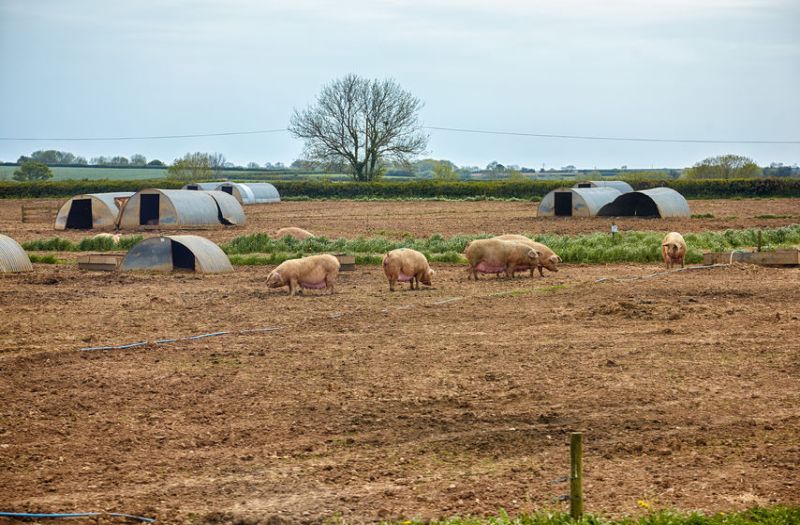
Over one in ten pork products sold last year had an 'outdoor claim' on the package labelling, according to new figures.
Twelve percent of total pig meat volumes sold in British retail had the claim, which could mean either outdoor bred or reared, on the labelling.
This equates to 92,000 tonnes. The majority of the volume sold with an outdoor claim is processed product (79%) – such as sausages, ham and bacon – with only 11% of the volume coming from primary pork cuts.
High penetration for outdoor claims is through the popularity of processed pork, which holds 79% of these claims, according to AHDB.
Outdoor pork commands a price premium, attracting older, more affluent shoppers.
However, AHDB says more information is needed to help consumers better understand the different pig production systems.
Pig production systems have clear rules regarding claims. For example, outdoor bred means pigs are born outside in fields where they live until weaning (7 kg).
Outdoor reared means pigs are born outside in fields, where they are reared for approximately half their life (at least 30 kg).
The free-range claim means pigs are born outside in fields and they remain outside until they are sent for processing.
Others include organic, which means pigs are born outside in fields and they remain outside until they are sent for processing. Feed must be organic.
Indoor bred claim means pigs live indoors for the majority of their life.
Supermarkets in Britain vary in the claims they support through labelling or public sourcing commitments.
AHDB commissioned research to gauge the size of the outdoor-claimed pork market within retail, a current gap in knowledge.
Pork products with outdoor claims command a price premium, being, on average, £2.50/kg more expensive.
